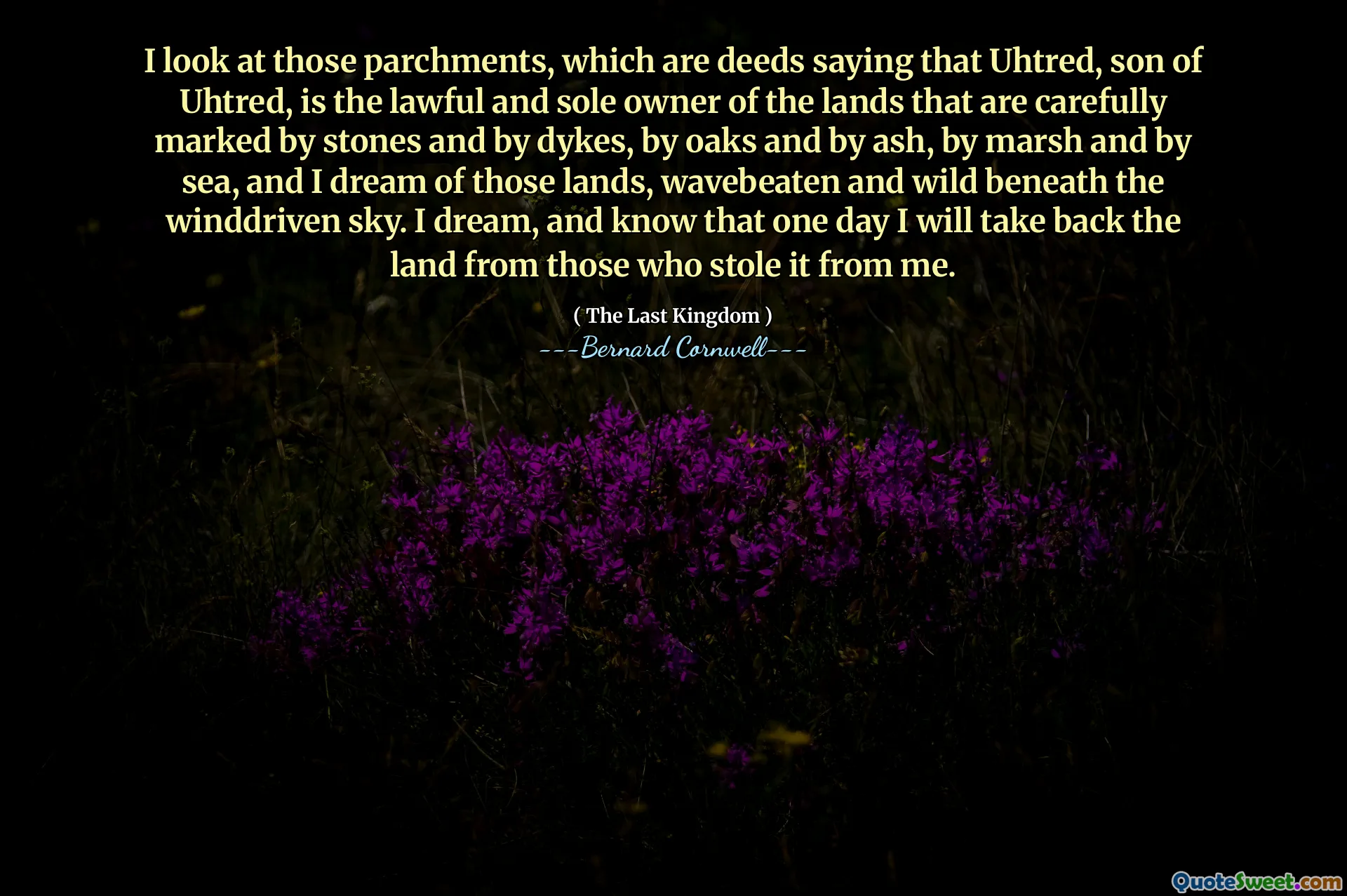
I look at those parchments, which are deeds saying that Uhtred, son of Uhtred, is the lawful and sole owner of the lands that are carefully marked by stones and by dykes, by oaks and by ash, by marsh and by sea, and I dream of those lands, wavebeaten and wild beneath the winddriven sky. I dream, and know that one day I will take back the land from those who stole it from me.
This quote encapsulates a deep sense of heritage, identity, and the relentless pursuit of one's rightful place. The protagonist reflects on official documents—parchments—that authenticate his claim to ancestral lands. These deeds symbolize more than ownership; they represent history, lineage, and a connection to the land's natural features, described vividly through landscapes of stones, dykes, oaks, ash, marshes, and seas. Such detailed imagery evokes a landscape alive with history and memory, emphasizing the importance of land as a cornerstone of identity. The act of dreaming about these lands, wild and free beneath the expansive sky, conveys a yearning for freedom and the restoration of what is inherently theirs. This longing is not merely about physical territory but also about restoring their legacy, dignity, and connection to their roots. It underscores a personal and serious commitment to reclaiming what has been wrongfully taken—the persistent human desire for justice and belonging. Such sentiments resonate deeply across cultural histories where land ownership signifies sovereignty and ancestral rights. The quote embodies themes of resilience, heritage, and the enduring hope that justice can be restored through perseverance and faith in one's rightful claim. It reminds us that land is intertwined with identity and that the pursuit of justice is often driven by a deep familial and cultural history, inspiring those who feel they have been betrayed or wronged to continue fighting for their rightful inheritance.









